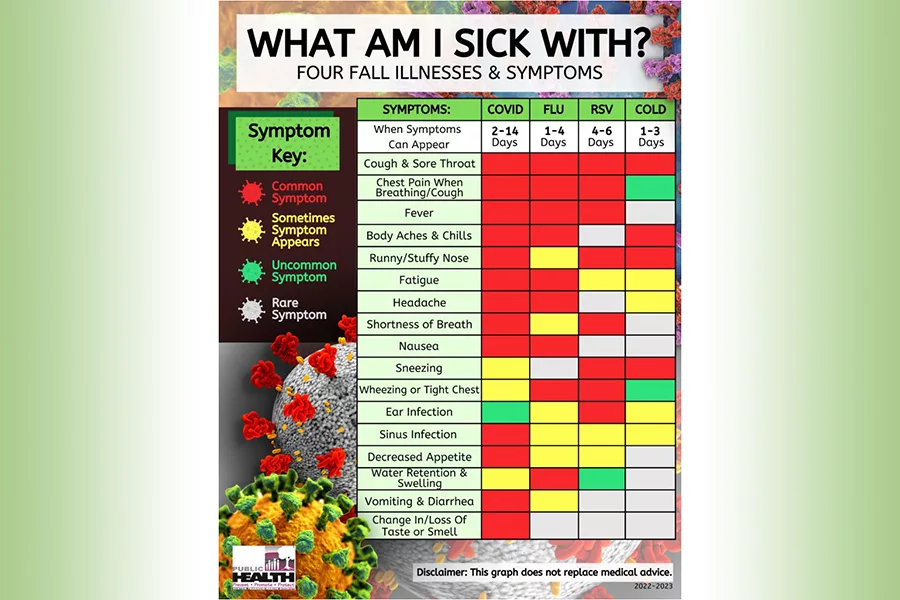
Home » As ERs fill, docs beg employers not to require notes from sick workers
As ERs fill, docs beg employers not to require notes from sick workers

December 14, 2022
As local emergency rooms, urgent care centers and walk-in clinics fill with patients reporting respiratory distress, Tri-City doctors have a plea to employers: Be flexible.
If an employee calls in sick, do not require a note from a doctor.
Sick employees who can’t immediately access doctors often turn to emergency rooms that are already slammed with rising cases of influenza, RSV (respiratory syncytial virus) and Covid-19, according to Tri-City emergency physicians convened by the Benton-Franklin Health District to alert the community to the brewing crisis.
“It would be good if employers had some flexibility,” said Dr. John Matheson, ER director for Kadlec Regional Medical Center in Richland. He was joined by peers from Trios Southridge Hospital in Kennewick and Lourdes Medical Center in Pasco.
“For someone to come into the emergency room to get a note that says they can’t come into work may distract from other priorities,” he said.
Washington employers must provide at least one hour of paid sick leave for every 40 hours worked under a law that took effect in 2018.
The health district sounded the alarm Dec. 8, saying the tide of illness is overwhelming medical services. The health district together with ER managers urged residents to take precautions such as getting flu and Covid-19 vaccinations, wearing masks, washing hands and staying home when ill.
Emergency rooms have been slammed by rising cases. Dr. Larry Jecha, interim public health officer, said the numbers are rising.
“We are concerned with the activity we are seeing,” he said.
RSV and flu are running six to eight weeks ahead of schedule, with rising numbers reflected in ER visits and school absenteeism. Covid-19 numbers are stable, but Jecha said virus levels are increasing in local wastewater samples, signaling a rise in the general population.
“Don’t overload our health care system,” he said.
Heather Hill, the district’s public health nurse, said the data area hospitals submit is clear: The trend is going in the wrong direction.
“We know what’s coming into our emergency rooms,” she said. “It is extremely high right now for influenza and RSV.”
She added that the district has requested Tamiflu and other medications from the strategic national medical stockpile amid a nationwide shortage.
Dr. Matthew Lamb, medical director for Lourdes, calculates he has seen 500 patients in the emergency room in the past four weeks, an unusually high level of activity for the Pasco hospital. Respiratory illness is driving more patients to seek emergency care.
The emergency room is not the best place to go except in life-threatening situations, such as difficulty breathing, he warned.
Lamb encouraged patients to visit the emergency room in true emergencies, but to consider their primary care physician, an urgent care clinic or walk-in clinic for other care.
ER visitors should expect long wait times, he added.
All three hospitals confirm they face shortages of beds and hold patients in the emergency room until beds are available. Dr. Adam Smith, OB/GYN and medical chief of staff at Trios, said the Kennewick hospital is prepared, but encourages residents to avoid getting sick.
Avoiding illness is key to managing the crisis and preserving hospital capacity for true emergencies such as heart attacks, strokes, injuries and life-threatening crises.
Simple precautions can be taken to avoid illness or reduce its severity, lessening demand on health care workers, the doctors said.
The health district confirmed flu shots remain widely available in the Tri-Cities and are effective at preventing influenza or reducing the severity. It also continues to encourage area residents to get the bivalent Covid-19 booster.
“We’d really like to prevent the illness to begin with,” Matheson said. “If you’re sick, stay home.”
Go to: bit.ly/BFHDRespiratory.
Local News
KEYWORDS december 2022





